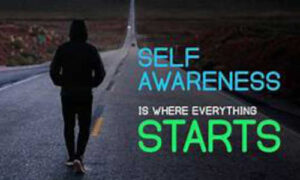Why aren’t we happy?
In spite of the abundance of possibilities, riches, choice in every aspect of modern life, we are no happier then we used to be; maybe less. Why do we feel so frustrated and stressed, so confused and uncertain? These feelings are not “all in our mind”, they are not imaginary or mere reflections or projections of an inferiority complex, for example. Sleep problems, digestive disorders, headaches, anxiety, depression, anger, hostility, alcoholism, drug abuse, heart disease, etc. are all recognized as stress related. I can’t think of any single person I have ever known that has not complained of at least one of these ailments, often chronic and thus a source of stress in themselves.
Ironically, despite global connectedness in any and every field of human activities, we feel increasingly emotionally disconnected from ourselves, from family and friends, from our world and this disconnect is source of constant and chronic anxiety; We feel that something is wrong, that something is missing, often we know we are neglecting our emotional well-being, and yet, we don’t seem to be able to find a way out. Our lives are often full of “things to do”, “fun”, and yet, there is no real joy, no true happiness. The consequence is confusion, an emotional malaise that undermines our health, and uncertainty about the sense and the meaning of our existence.
The greatest profits for the pharmaceutical industry come from the sale of drugs for stress related problems: antidepressants, tranquilizers and sleeping pills, hypertension treatments and ulcer medications, pain killers and stimulants.
But, there is a way out.
I propose an approach that can bring back the pleasure, the joy, the happiness, the freedom of simply being you and enjoying your life. I have not invented anything new, anything that has never been known, on the contrary, I have simply put together a wealth of knowledge whose source is as old as humanity itself, hidden under the clutter of technology and the ceaseless chatter of our conscious mind. Our conscious mind thinks logically, in a linear mode, solves problems, takes us through our everyday life. We have a lot to thank our conscious mind for; alas, it is also responsible for almost all our stress! Many believe that our conscious mind is our only mind, but there is, however, another mind, much older than the conscious thinking mind, the feeling non-conscious mind.
Before continuing, it is appropriate to add some brief information regarding the structure of the brain and correlated functions.
What we call our brain is, actually, a complex structure made of many different parts, which collaborate all the time. It took millions of years for our brain to develop and, obviously, its various parts developed in periods that were very distant in time from each other.
The main function of the so-called reptile brain or reptilian complex (it was given this name because to this day it has the same functions of a reptile’s brain) or brain stem is being responsible for basic vital life functions such as breathing, heartbeat, and blood pressure as well as controlling the external and the internal environment for any kind of danger and for food.
The mammalian or emotional brain (it developed with the development of mammals), made up of many different parts, evaluates and integrates all the information moving between the reptilian brain and the neocortex in order to give them emotional meaning, but it also addresses the emotional behaviour by sending messages to the reptile brain to initiate reactions of fight or flight as well as messages to the neocortex, producing sentiments and facial expressions. Since it is the seat of our emotional consciousness, it also influences motivation.
The neocortex synthesizes and processes all stimuli perceived by the senses so that we may have an understanding of our world, have ideas, use symbols and simply imagine.
In psychology, in psychoanalysis and in most psychotherapies the concepts of “the conscious mind”, “the sub-conscious” and the “non-conscious or unconscious” are everyday bread, but, in spite of this, the discussion regarding the nature of the mind is still very much alive.
For some, what we call mind is simply the end product of the numerous functions of the brain, for others, it is an energy external to the brain that uses the various mechanisms of the brain, and others have other explanations.
What we do know, however, and what all agree upon, is that if we wish to improve the quality of our life and create a better future for mankind, if, as Richard Buckminster Fuller said, we wish to be the architects of our future and not its victims, we need to find a better equilibrium between the, more recent, thinking parts of our brain and the, more ancient, feeling parts.
Everything in nature tends constantly and inevitably towards a state of homeostasis and equilibrium and conscious participation in this process helps us to reach this state faster and with greater ease so that we may profit from it in the most favourable and healthy manner.
There is the way out and we can find it together.

